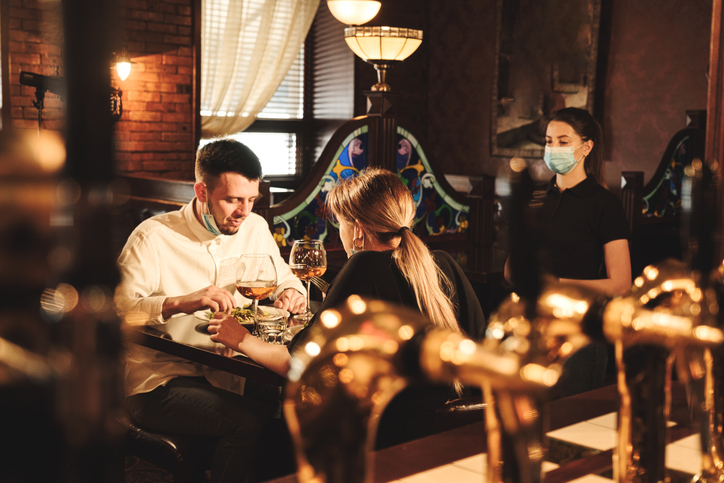
Calls for action on business rates as inflation reaches 40-year high
Mounting pressure is being placed on the government to ease the ‘financial fragility’ of the hospitality sector during its upcoming review of business rates, as businesses continue to suffer rising supply chain costs and runaway inflation.
The issue of business rates and their role in the trading lives of hospitality businesses rose again today when UKHospitality (UKH) called on the government to take decisive action during its upcoming review. At the same time, the office of National Statistics (ONS) revealed that the UK’s rate of inflation hit 9.4% in June – an increase on May (9.1%).
Among its recommendations, UKH asked for any reductions under reformed business rates to be reflected in bills ‘as quickly as possible’. It also drew attention to the ‘profound impact’ of the pandemic on hospitality property values and prices. Many are carrying heavy debt and facing soaring costs, the body said.
The comments form part of a response to the government’s consultation on a planned business rates revaluation, which is due to bring in new rateable values as of April 2023.
It’s another chapter in the ongoing saga of business recovery and government support – the latter of which has been slowly withdrawn during the tail end of the pandemic.
For example, hospitality businesses were granted a reduced rate of 5% for VAT in July 2020 before rising to 12.5%. VAT then returned to the standard rate of 20% in April 2022, after pleas to chancellor Rishi Sunak for further delay were ignored in his Spring Statement.
UKH said business rates reform is due to arrive at a time of ‘unprecedented circumstances’ for the industry – something representatives say should be reflected in the 2023 revaluation.
“The priority must be enabling reductions in bills to be felt immediately, and the government needs to ensure that the cost is reduced for those sectors hit hardest by the pandemic and in most need of support,” UKHospitality CEO, Kate Nicholls, said.
“We strongly believe that government needs to reflect the unprecedented impact of the pandemic, compounded by the impact of an economic downturn and high levels of inflation, in the new rates scheme. If this is taken into account, the hospitality sector can play its full part in the wider UK economic recovery, creating jobs and delivering skills and boosting our high streets and communities.”
Specifically, the body is calling for an assurance that the scheme will allow businesses to reach their true reduced value from April 2023. It also calls for a cap on how much bills can rise and no RPI increase in the total sum of business rates. Finally, it is asking for the continuation of business rate reliefs for businesses hit hardest by the pandemic.
From the government’s side, the review was first announced in the October 2021 Budget, when Chancellor Rishi Sunak revealed plans to reform certain elements of the business rates system.
In recent years, this system has come under increasing scrutiny, particularly due to the growth of online retail and the move to home-working.
A series of temporary business rate reliefs were granted during the height of the pandemic in 2020 and 2021 for several sectors, including retail, leisure and hospitality (restaurants, pubs and bars).
A further discount was put in place for eligible businesses at the Autumn Budget: offering 50% off business rates bills for the 2022 to 2023 tax year, up to a total value of £110,000 per business.
Meanwhile, inflation continues to whip up an economic storm and threaten long-term recovery.
Commenting on today’s ONS statistics, Sam Martin, chief executive of Peckwater Brands, said, “Inflation has the hospitality sector caught between a rock and a hard place. On one side, businesses are facing rising costs across their supply chains and operations. On the other side, consumers’ finances are under significant pressure, which will likely affect the amount they spend at takeaways, restaurants, pubs and bars.
“Given that the pandemic saw more than 10,000 licensed premises lost during lockdown, with 640,000 jobs lost despite government support, the UK cannot afford to let this situation escalate any further.”
Atul Bhakta, CEO of ecommerce solutions provider One World Express, also expressed concern that inflation continues to spiral: “Recent research found that more than two-fifths (43%) of UK businesses are committed to not passing price rises on to consumers. Whilst a valiant initiative, doing so will likely have a massive impact on such organisations – after all, 60% of businesses anticipate their business will suffer due to inflation.”
Both called for greater support from the government, along with ‘clarity’ on the path forward – including picking up the pace on new trade deals which could diversify sales abroad.
“Naturally, this is not an issue that can be resolved overnight – all of us will feel the pinch to some degree. Today’s figures underline the importance of providing clarity to businesses for the short-term, while the longer-term efforts to soothe supply chain issues and rebuild Britain’s trading capacity is undertaken,” Bhakta said.
Keywords:
- UK
- Business
- hospitality
- CEO
- ONS
- Inflation
- Government
- support
- VAT
- Rates
- businesses
- rate
- business rates
- hospitality sector
- UKH
- pandemic
- chancellor rishi sunak
- hospitality businesses
- government support
- 000 licensed premises
- bills
- inflation continues
- business rate reliefs
- takeaways restaurants pubs
- 10 000 licensed




